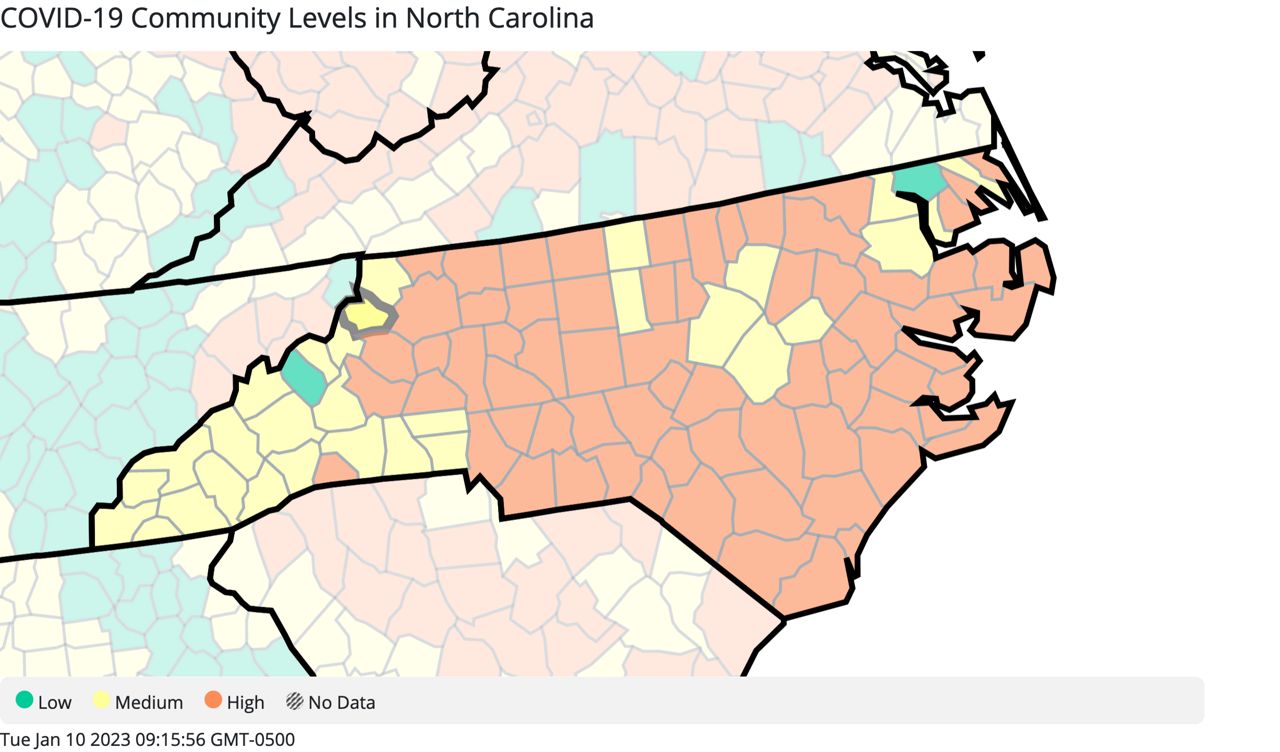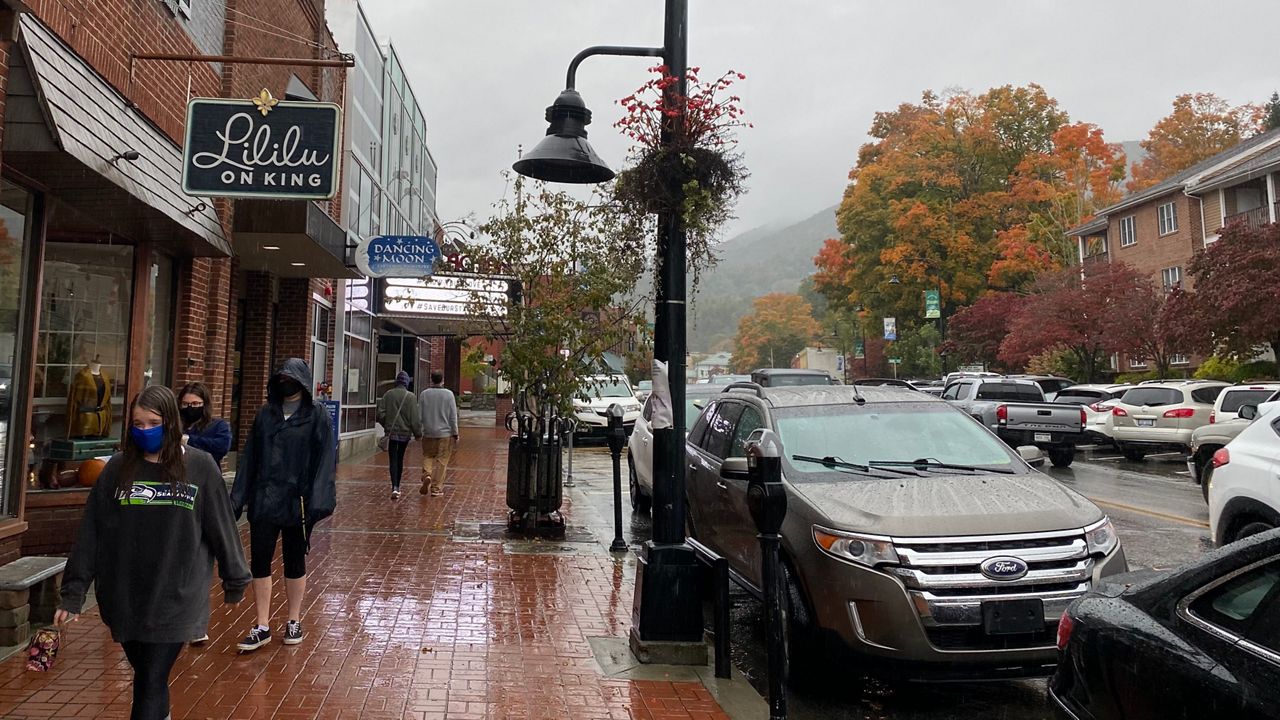The Town of Boone is closing public offices and telling employees to work from home until at least Jan. 17 because of the increase in COVID-19 cases. Town council meetings scheduled for Tuesday and Wednesday have also been canceled.
The number of COVID cases in North Carolina has been increasing since the holidays, according to data from the Department of Health and Human Services.
What You Need To Know
- The Town of Boone is closing its offices to the public until at least Jan. 17 because of COVID-19
- Town employees have been told the work from home for at least a week
- COVID case numbers have been increasing in North Carolina since the holidays
- The CDC lists most North Carolina counties as having high risk for community spread of the virus
The Centers for Disease Control and Prevention list Watauga County as having medium risk for community spread. Much of the state is now listed in the CDC's "red zone" with the potential for high community transmission.
About 9% of hospital beds in the county are taken up with patients who have confirmed cases of COVID-19, according to the CDC. The case rate in Watauga County is about 256 per 100,000, compared to a statewide rate of about 410, CDC data shows.
Boone is home to Appalachian State University, where students have been returning from the winter break over the past week. In the three years since the COVID-19 pandemic began, public health officials have seen regular winter spikes after holiday gatherings.
All of the familiar indicators for COVID-19, including wastewater sampling and hospital admissions, have been increasing in recent weeks.
There are new variants fueling the latest case spikes. Dr. David Weber, with UNC Health, said the new vaccine boosters help protect against these new variants. But, he said, some of the treatment options for earlier versions of the virus no longer work with the new variants.
RELATED: COVID, flu and RSV: There’s good news and bad news for North Carolina




